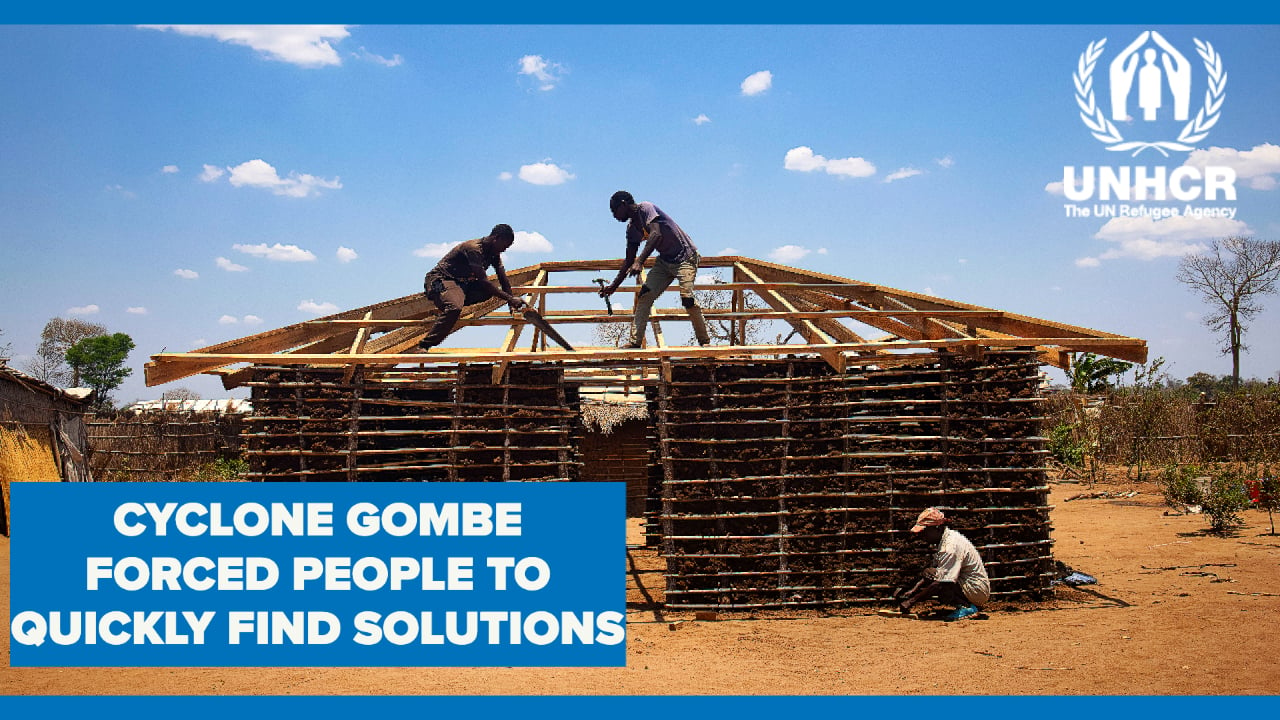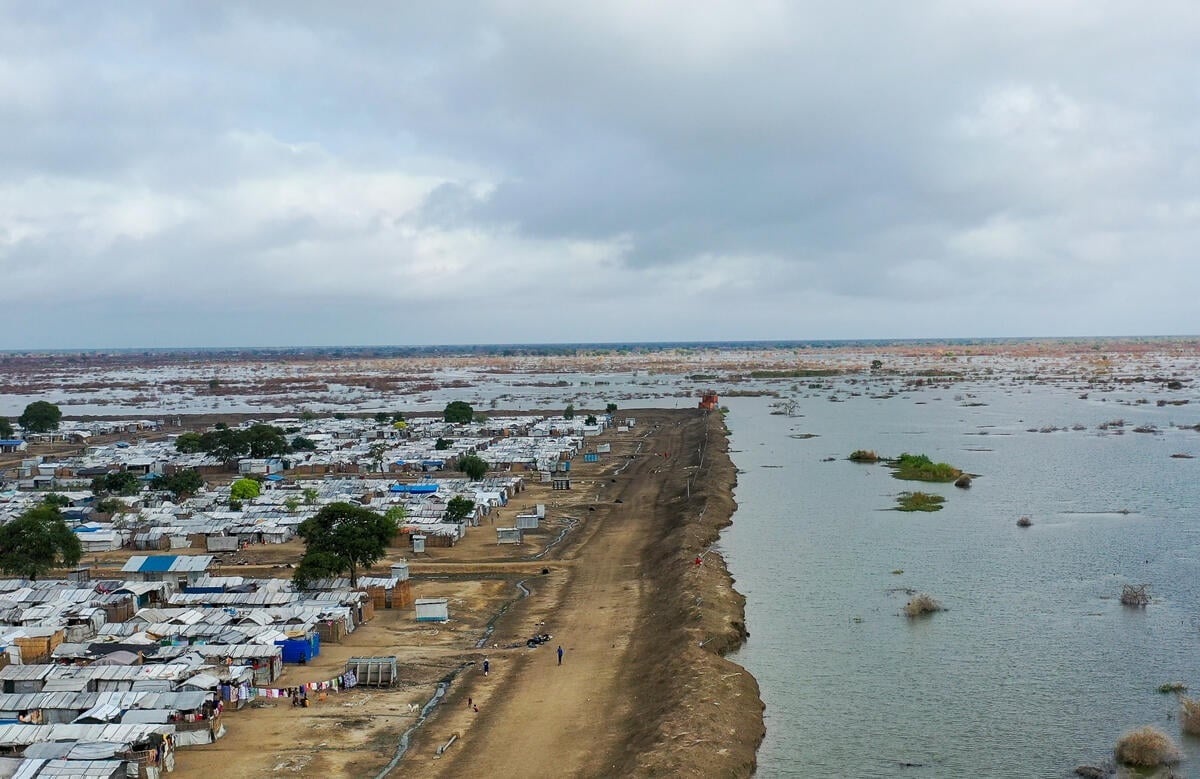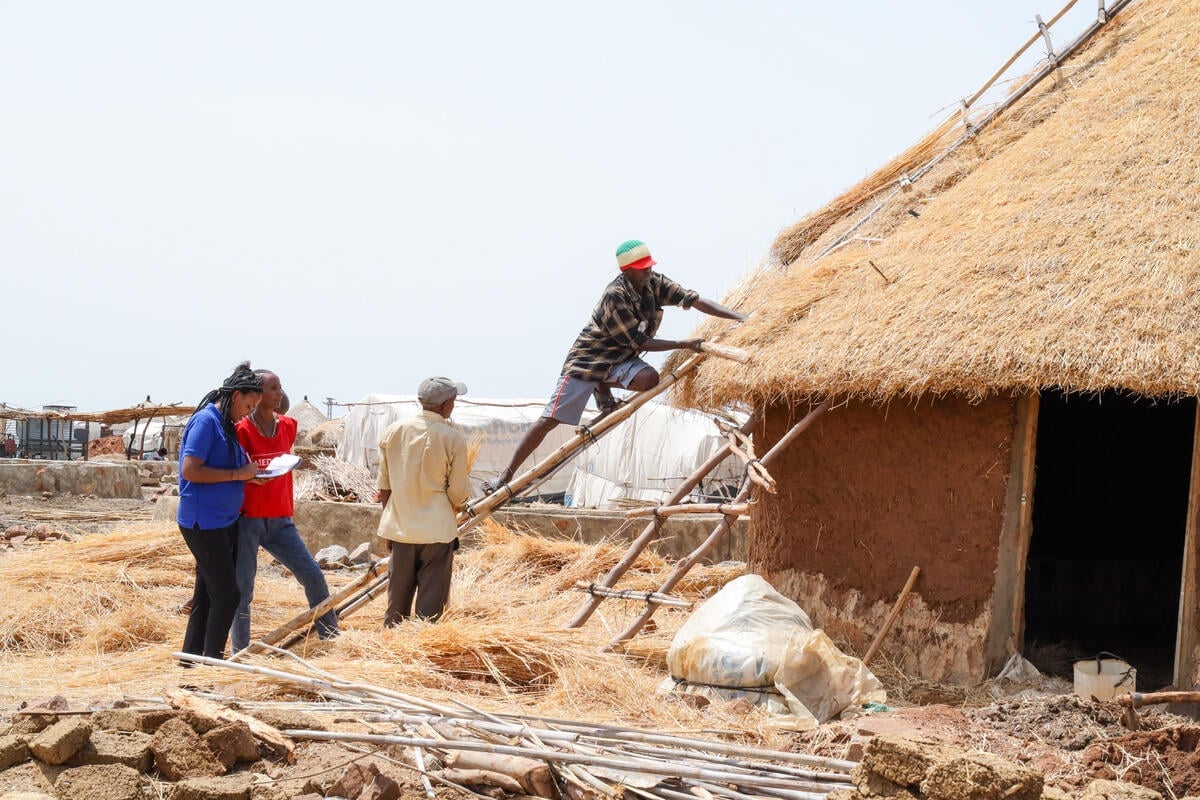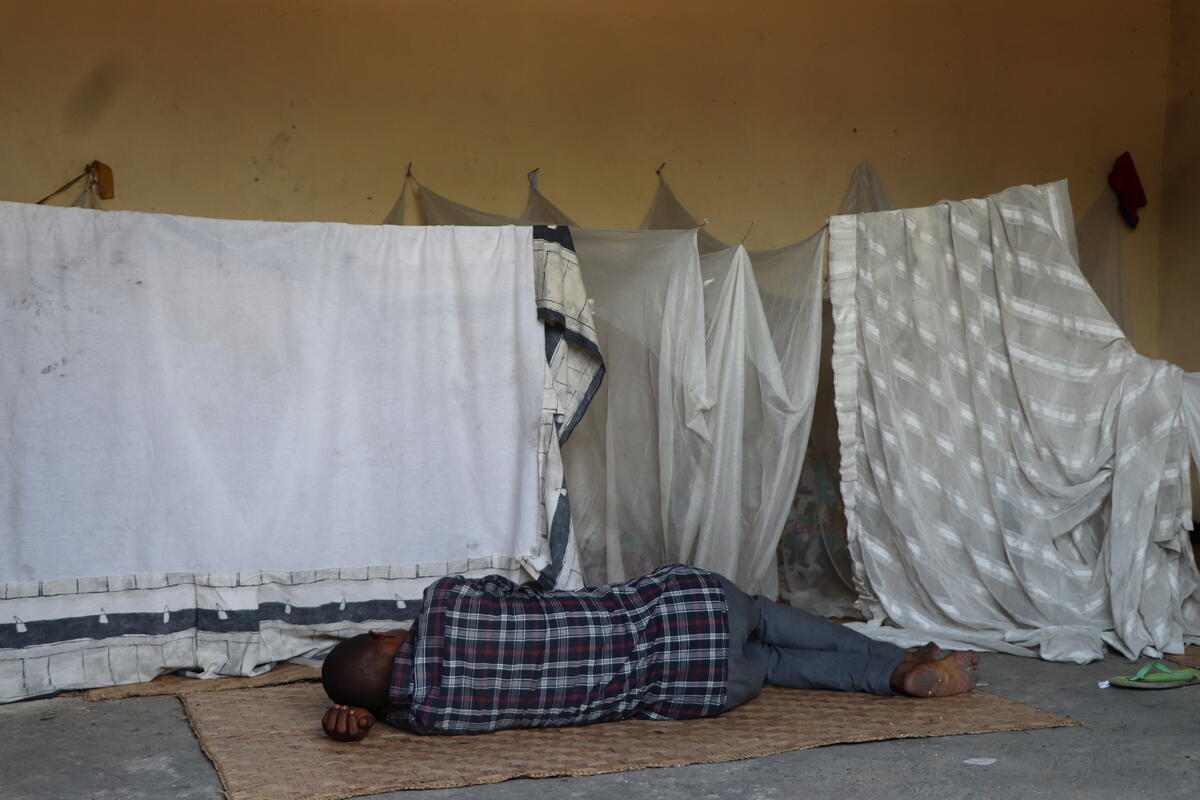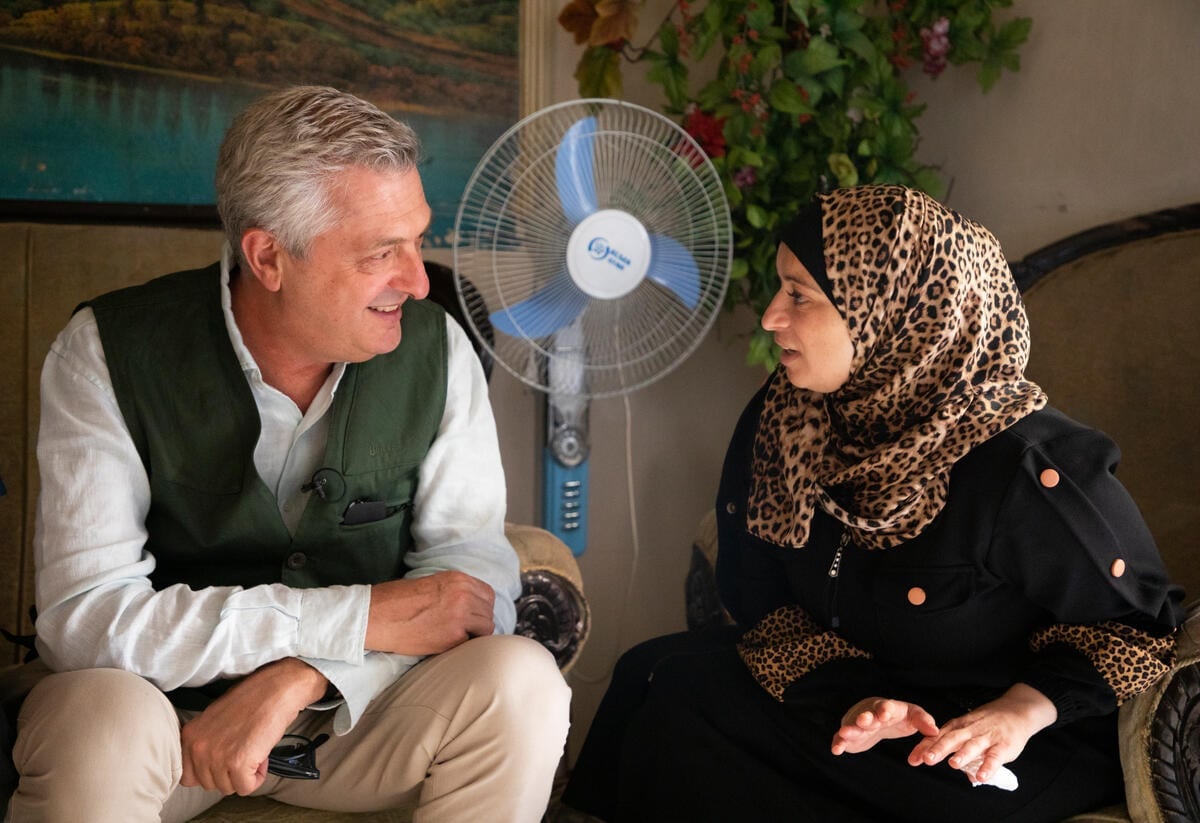Pakistan President thanks UNHCR for tents at emergency camp
Pakistan President thanks UNHCR for tents at emergency camp

BALAKOT, Pakistan, October 19 (UNHCR) - Pakistan President Pervez Musharraf today made an unscheduled visit to an emergency camp where hundreds of quake survivors were living in tents provided by UNHCR, to reassure its residents that more international aid is on the way and to thank the UN refugee agency for its assistance in the aftermath of the disaster.
Bassian camp, near the now-levelled city of Balakot in Pakistan's North-West Frontier Province, has been operational for four days and currently houses more than 700 people. The Pakistan army has erected 200 family tents donated by UNHCR.
Food supplies such as wheat flour, rice and pulses have been made available through international donation, and the American non-governmental organisation, International Medical Corps, has set up a clinic.
According to Lieutenant-Colonel Atif, the officer in charge, most of the camp's residents have walked from villages about 60 km away, often carrying injured relatives on their backs. "When they arrive, they are in a state of shock," he says. "We give them food, provide them with bedding and clothing, assign them a tent and treat their wounds."
For now, only bottled water is available and the nearby stream is used for bathing. But a Pakistan charity will soon be installing sanitation facilities with assistance from UNICEF.
Bassian camp is the first of several Pakistan camps to be established in the area over the coming days and weeks. "In this vicinity, we are looking at being able to accommodate a total camp population of around 5,000 families," says Lieutenant-Colonel Atif. "We have 400 tents and UNHCR has generously said it can provide more."
Additional camps are planned for other stricken areas and UNHCR is helping in the assessment of further camp locations. Three sites were identified in Muzaffarabad today. The UN refugee agency is leading coordination on camp management as part of the overall UN response to the earthquake.
"This is our last ray of hope," says Mohammad Ashram outside his tent in Balakot. A teacher at the secondary school in the village of Muslimabad in Pakistan-administered Kashmir, Mohammad was in the classroom when the earthquake struck. "At first we didn't know what was happening," he says. "But the school just kept shaking."
He and the other teachers were able to get nearly all the 325 students outside before the building collapsed. Four students died. And for Mohammad, the tragedy struck even closer to home - he lost his five-year-old daughter who had stayed home.
When he and his remaining family arrived in Balakot, they slept on open grounds until a member of the army directed them to Bassian camp. "I have nowhere to go back to and am very grateful for this assistance," says Mohammad.
But the loss of property means nothing compared to the loss of a child. "I feel totally lost," he says.
Nearly all the residents of Bassian camp have similar stories of loss and grief. The father of Bibi Saima at one point believed that his daughter had also perished. Like so many of the children claimed by the earthquake, Bibi was in class when the tremors began. As she ran outdoors with the others, a section of the roof fell, trapping her underneath. During the five hours it took to rescue her, her father did not know whether or not she had survived.
In most of the earthquake-affected areas, winter is only weeks away. Providing adequate shelter and cold weather supplies is now a key priority.
UNHCR is flying into Pakistan more than 15,000 tents, 220,000 blankets, 68,794 plastic sheets, 500 plastic rolls, 31,840 kitchen sets, 2,000 stoves and 5,000 lanterns. The agency has appealed for US$22 million to manage temporary camps for people displaced by the earthquake.
By Tim Irwin in Balakot, Pakistan


